Every election cycle has high stakes, but the stakes of this November for CCSF have never been quite so concrete. With the possibility of losing our accreditation hanging over our heads, the College’s fiscal fortunes sway from losing another $11 million to gaining more than $14 million annually.
It is understood in some circles that if Proposition 30 fails, the resulting trigger cuts will cause the demise—the actual disappearance—of several smaller community college districts in the state. That this is “understood” should ring terribly in all our heads: Will the state just let this happen? Where is the outrage here? Some think City College is “too big to fail,” but what about the other colleges and their students?
Of course, the relentless cuts have context: they are the result of the worldwide financial meltdown and the subsequent inability of the state to help itself through the crisis because of 30 years of tax leaks, cuts, and loopholes to the rich and corporations. Schools don’t get bailed out; they just get hit harder.
While inadequate funding is certainly not our only challenge at CCSF, AFT 2121 believes it is primary; we were concerned about the budget long before any accreditation or FCMAT report or any newspaper article said so, and we have worked for the last several years to bring in new revenue. And on November 6, we finally have some practical, winnable revenue opportunities.
Do something—productive
The most concrete thing all faculty can do to help ensure CCSF’s future fiscal stability and re-accreditation right now is to help pass Propositions A and 30. More revenue (A) and fewer cuts (30) is not the only issue, but it is significant, and everyone at the college can help make it happen. Talk to your precinct rep or email getactive@aft2121.org or call 415-585-2121 to find out about the many ways to contribute. You can also go to saveourcitycollege.com and literally contribute: in fact, we’re asking all faculty who don’t own property in San Francisco to kick in $79 toward the campaign.
Easy to forget
Let’s be real: this is scary. The anxiety and fears we hear about from members are understandable, all justified, as we worry over our own families’ futures and those of our colleagues, our students, and the institution.
Amidst the flurry of teacher-bashing and public employee-blaming for the economic crisis a year or so ago, we reminded everyone that this crisis was not your fault, our fault. But it bears repeating now, as the ACCJC, the media, and the bashing focus on our extraordinary but beleaguered institution.
Crash course in alumni appreciation
Those of us who have been out walking precincts feel the love expressed for our college: when we present people with Save Our City College signs we are nearly always met with stories (“City College saved my son!”) and relief to hear that there is something concrete they can do to help, by supporting Prop A.
Which is a good reason to join us on the campaign trail. Volunteers report they are reminded of the bright spots: the fact that community members see CCSF faculty as heroes (an actual email); that they cannot imagine a San Francisco without City College; that many credit the institution with improving and enriching—sometimes even saving—their lives.
San Franciscans know that while some “junior” colleges focus primarily on transfer, we are also teaching immigrants English, helping welfare recipients transition to work, training those in recovery to help their peers through drug and alcohol counseling, serving as a lifeline to newly returned veterans, and boosting the skills of unemployed and under-employed workers so they can attain increasingly knowledge-intensive jobs.
This role is broader, more complex, and more beneficial to our city; it’s also a role a lot of conservatives flatly reject and others have given up on. And it’s a role that may well disappear if we do not turn around the funding crisis.
Growing the pie is better than re-slicing
Given the budget situation and FCMAT taking aim at courses and programs as well as collective bargaining and fair employment practices, we know that negotiations will continue to be challenging. The entirely achievable $14 million from Prop. A and the prevention of another $10+ million loss if Prop. 30 loses will help protect the college and help protect its workers from the most heinous “solutions.”
AFT 2121 does not believe that meeting our accreditation or returning the District to fiscal stability necessitates abandoning the principles we collectively hold dear. But we need concrete solutions and a bigger pie.
At an institution that has in some cases been too slow to make smart changes (piloting web-based grading for 10 years rather than helping all faculty make the switch sooner comes to mind), we also do well to remember that there are areas where we can do better. Some fiscal “solutions,” after all, are better than others.
Change is not bad on principle; all too often, however, reforms are made thoughtlessly or pushed for the wrong reasons. In fact, the college is already making reforms that improve enrollment and scheduling, streamline management, and upgrade technologies. These measures will make better use of available resources and have less damaging impacts on workers or students than other options that have been proposed.
All true
Multiple things can be true at once, and more than one analysis can shed light on most complex situations. Thus, it can be true that City College has improvements it can and should make for the sake of our students and the institution as a whole. Meanwhile, privatization is a significant threat to public education and the public sector. And public employees—unions in particular, especially teachers unions—are the targets of right-wing attacks gone mainstream (see pg. 5 on the terrible Prop. 32 as one example—or coverage of the Chicago Teachers Union strike) that simplistically shift blame onto workers. These trends are neither mutually exclusive nor competing theories.
If we want to maintain accessibility, educational quality, and our mission as a community college, serving the broad San Francisco community with a necessary focus on low-income and underrepresented students for whom CCSF is the only option, we need to focus on concrete, short-term gains with long-term benefits for the College. First comes November 6: do all that you can. Join us! (amesser@aft2121.org)

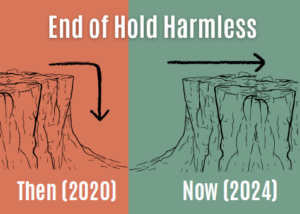

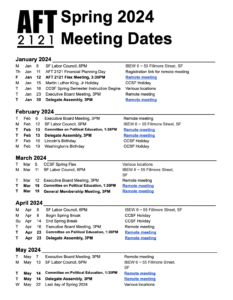
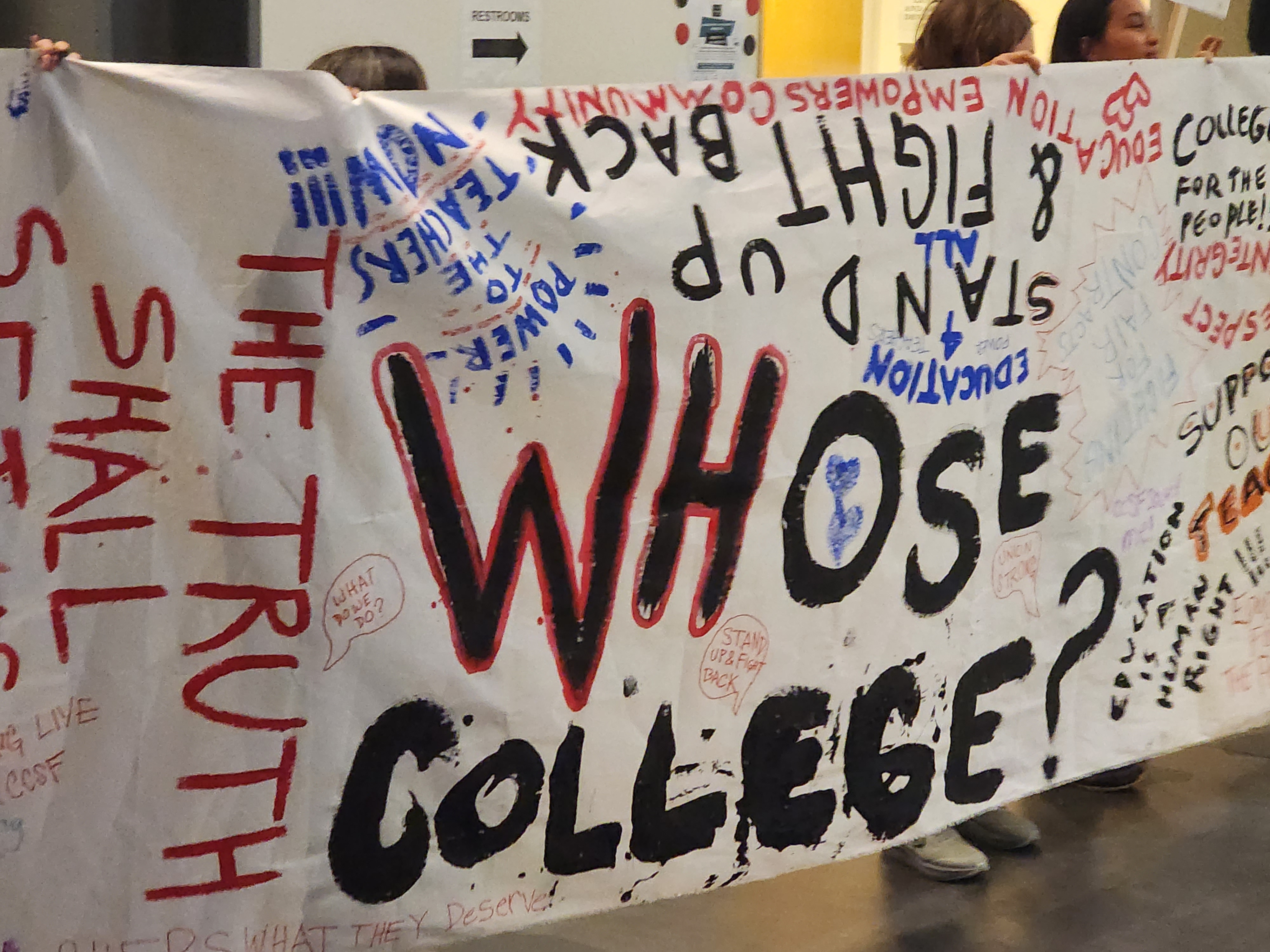
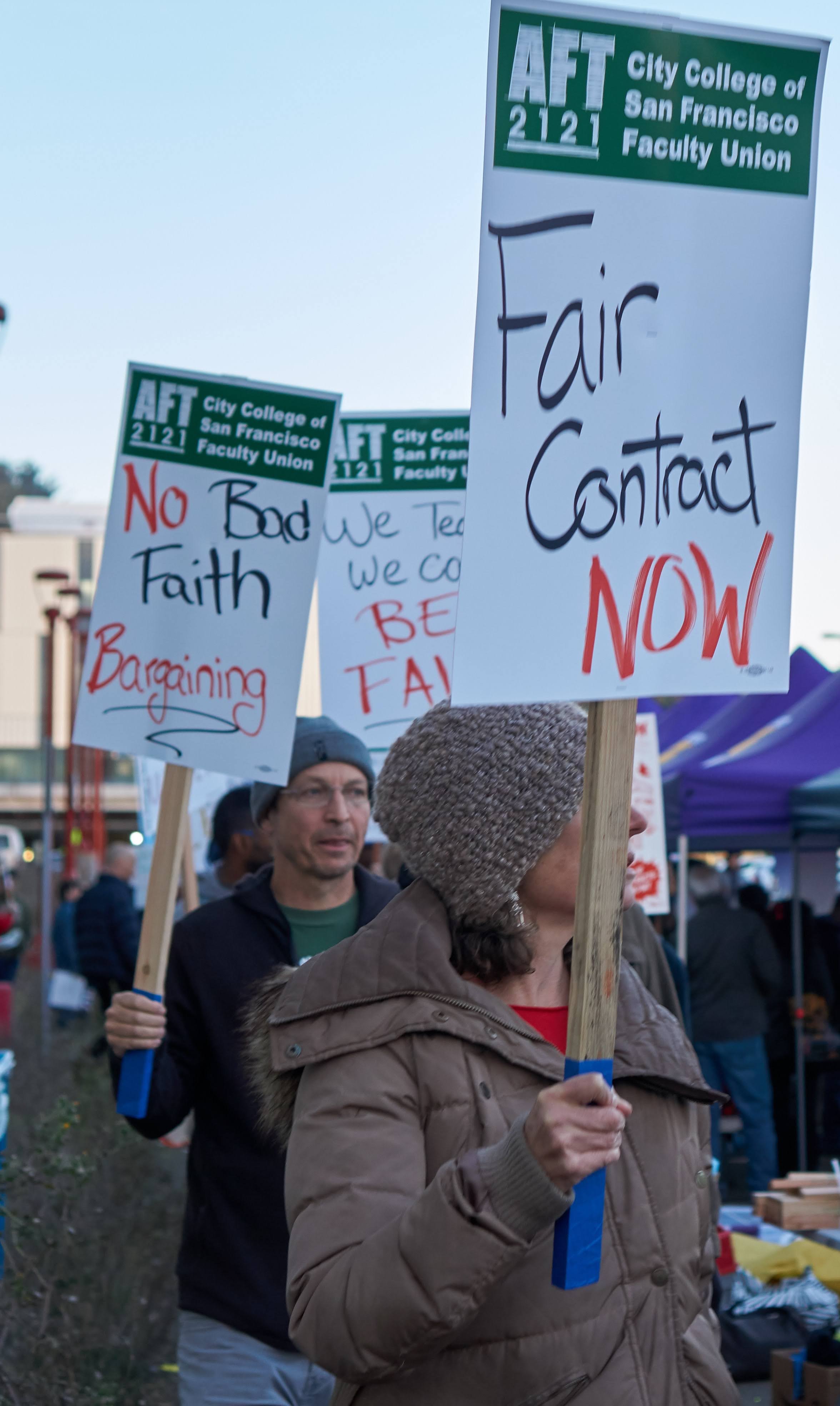
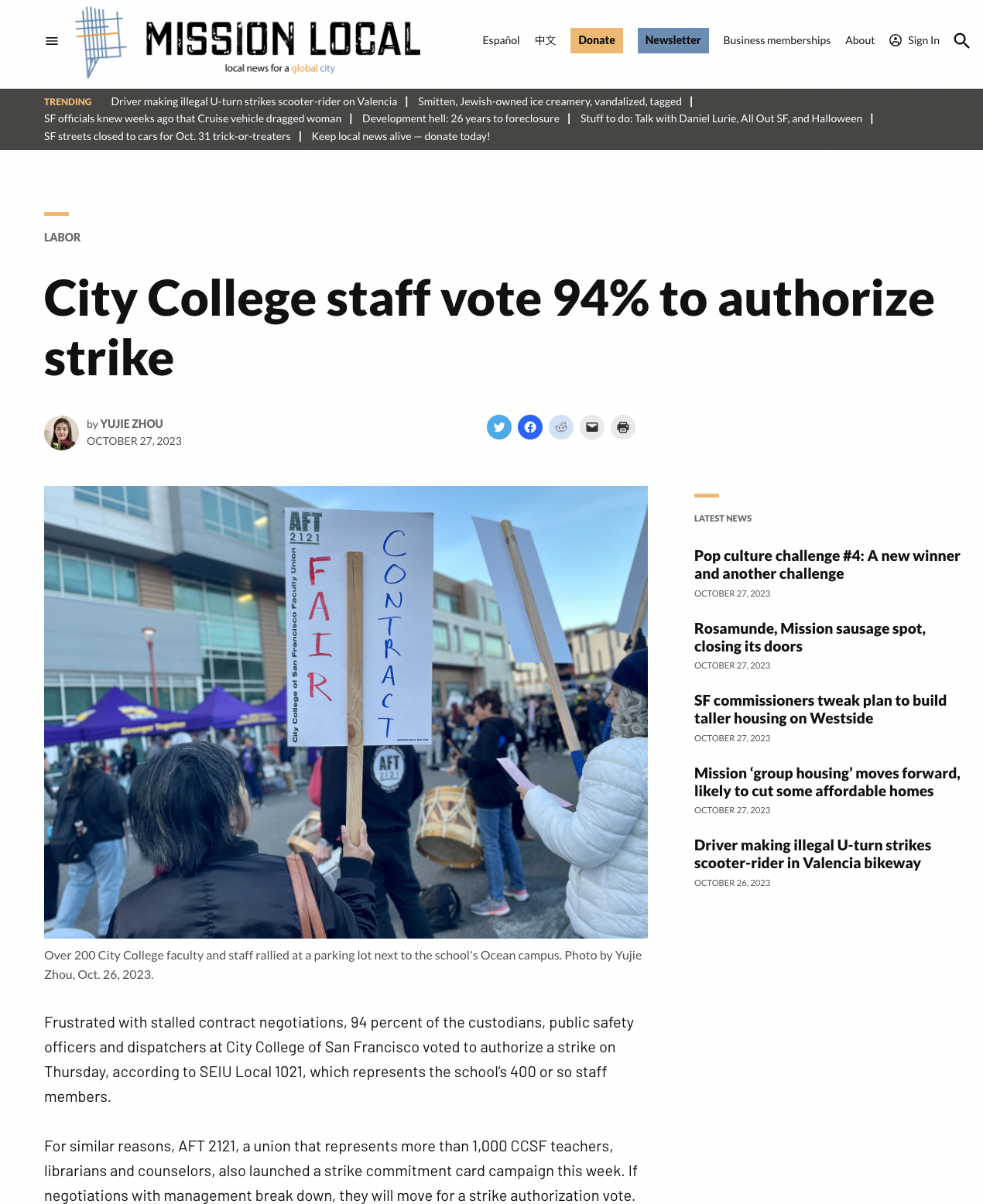
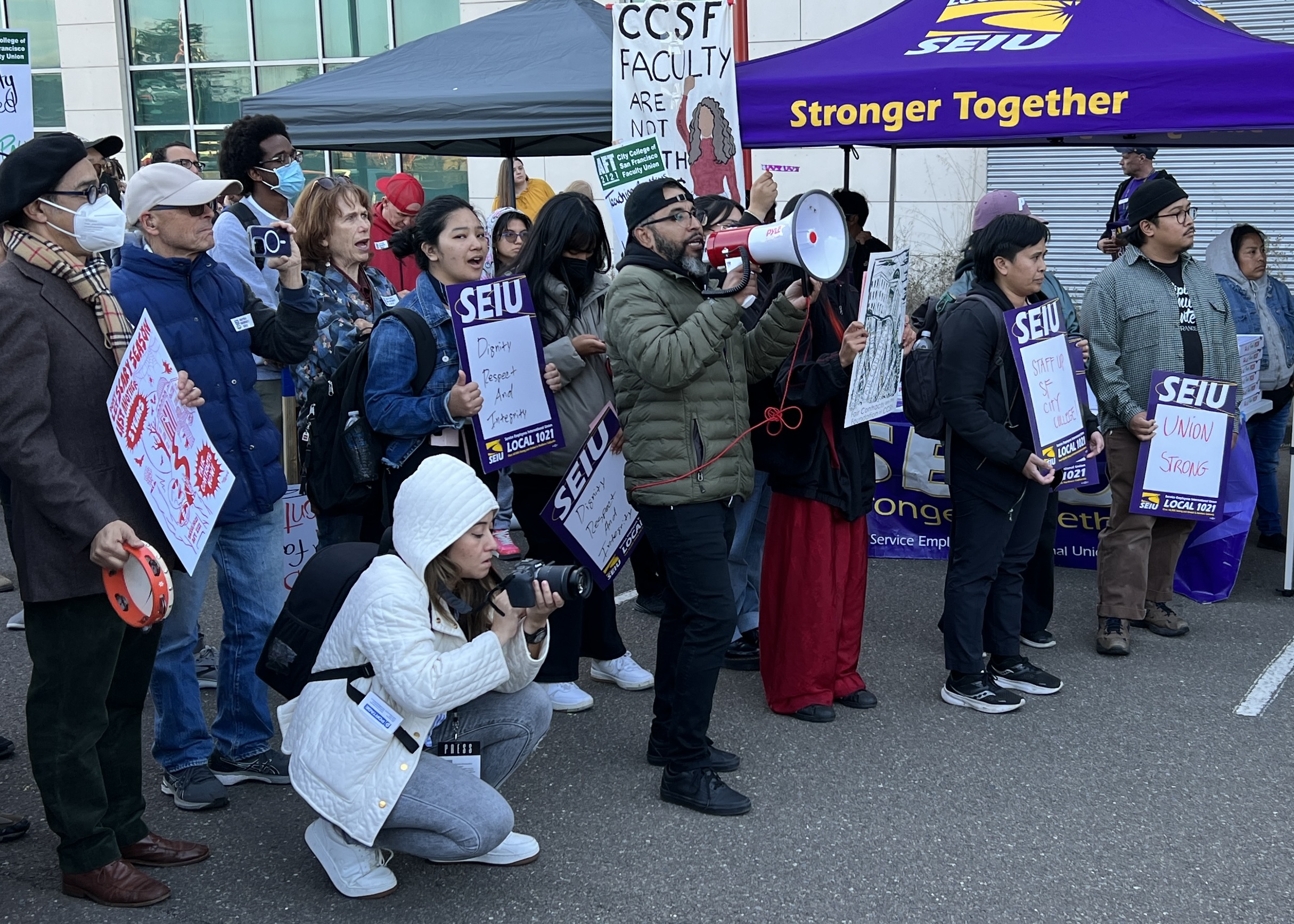
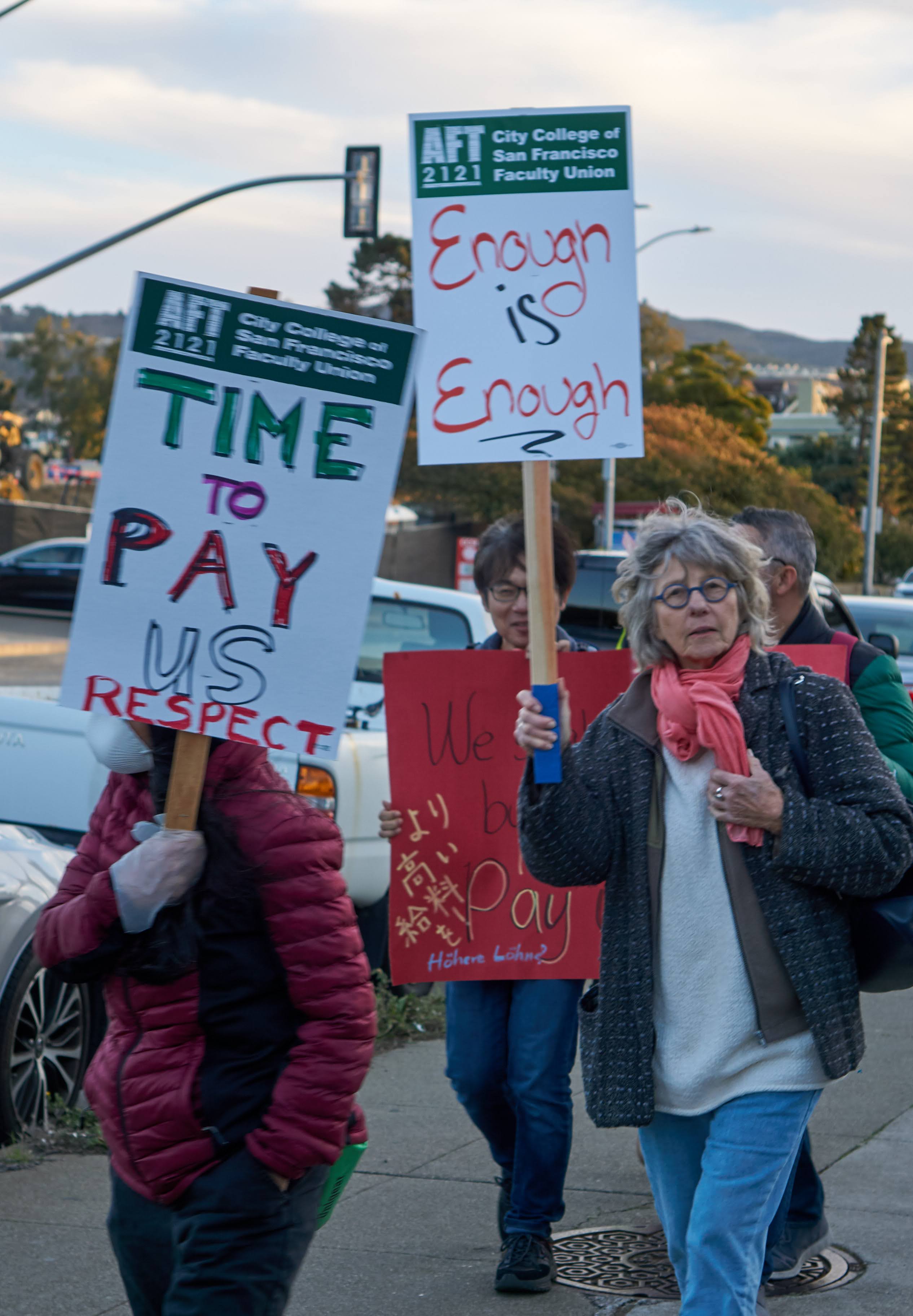
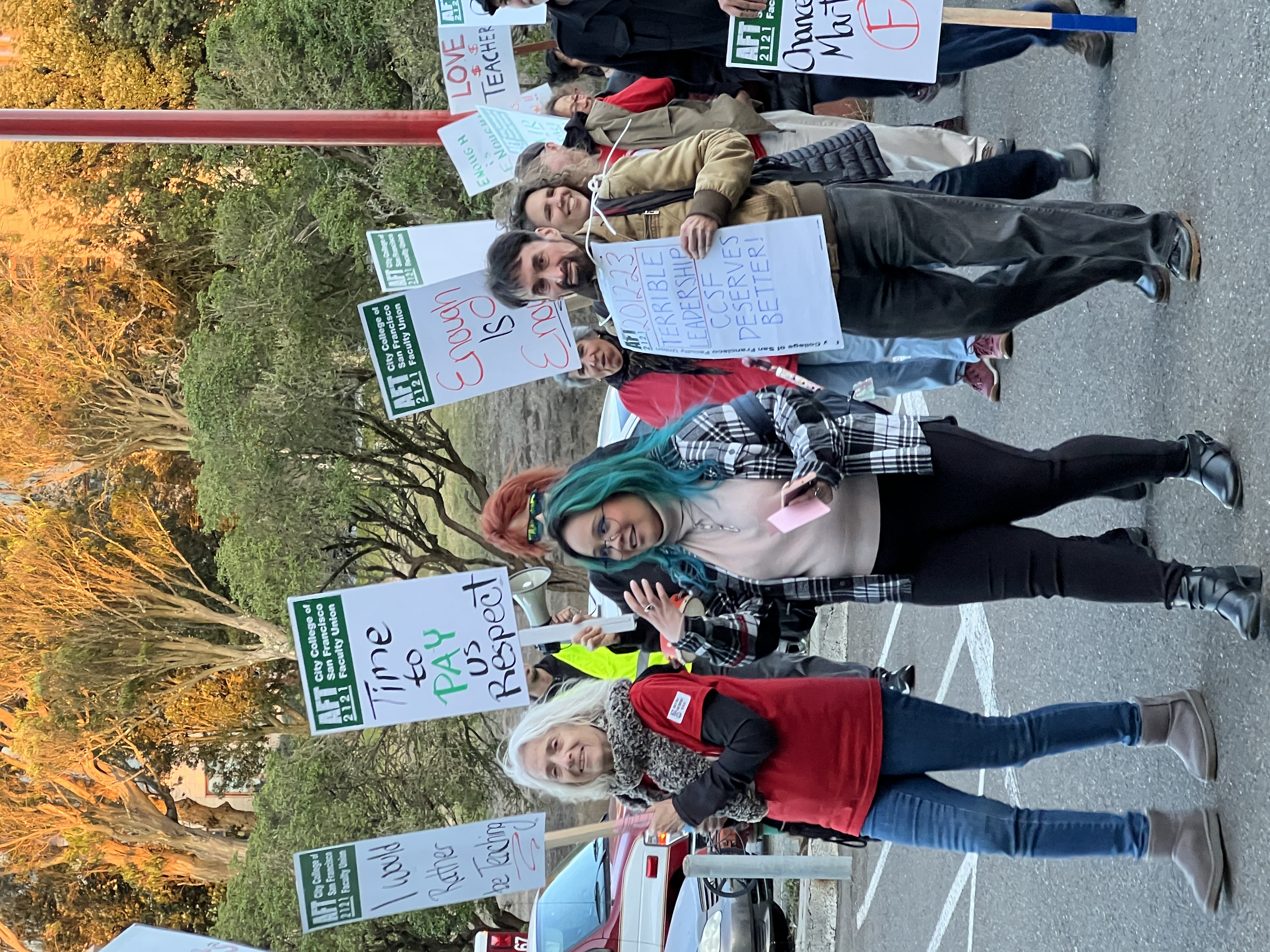
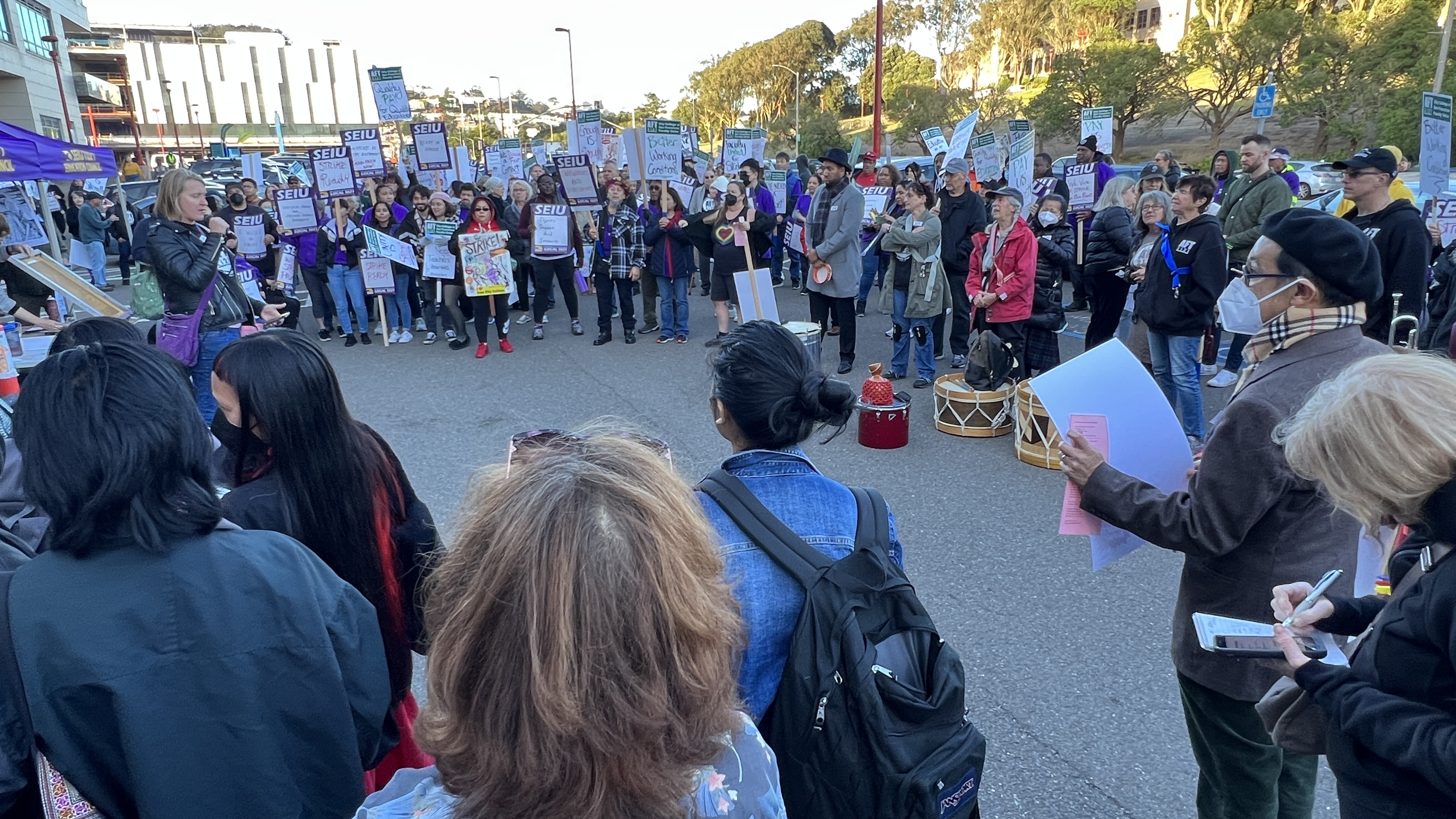
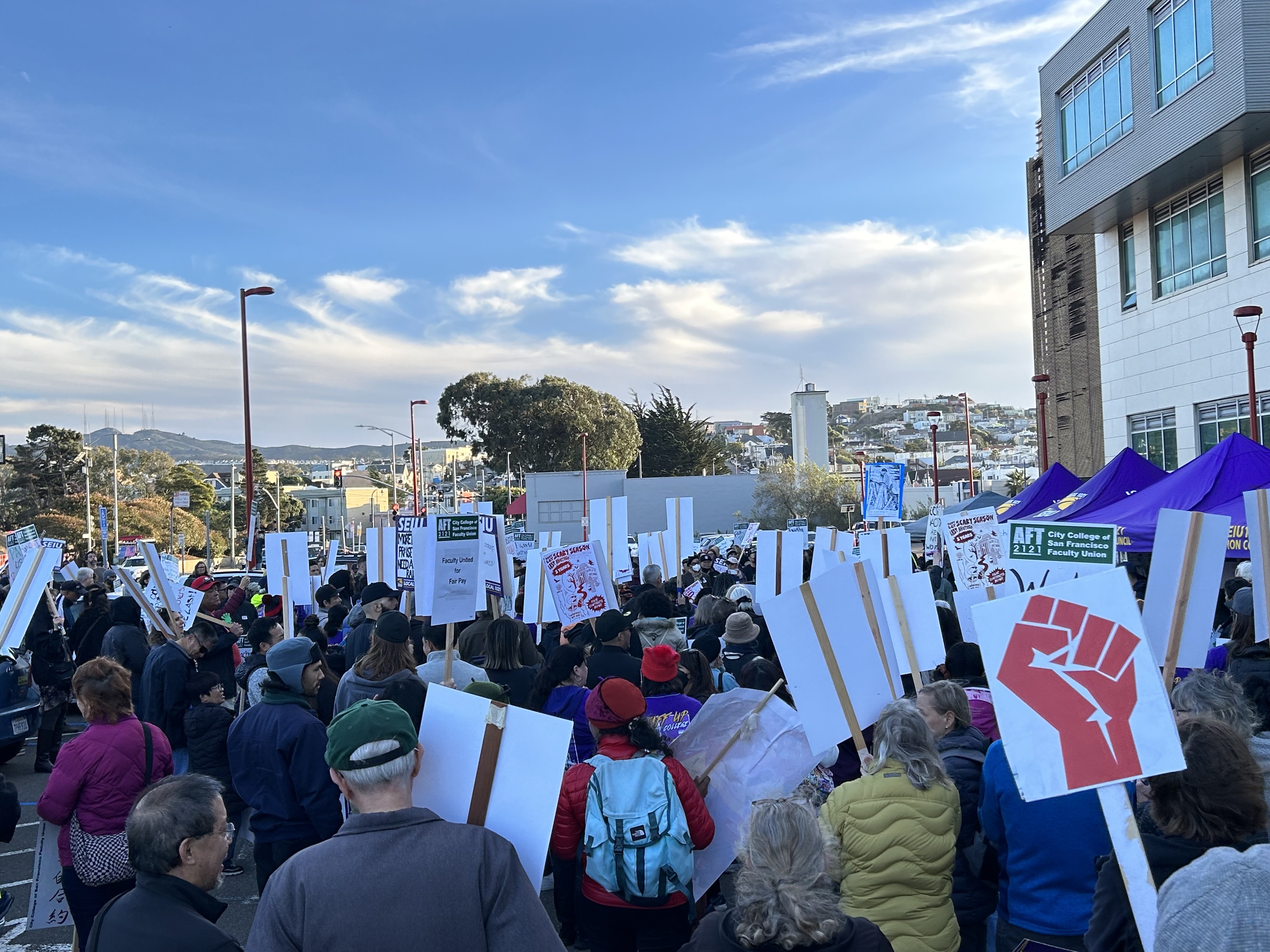
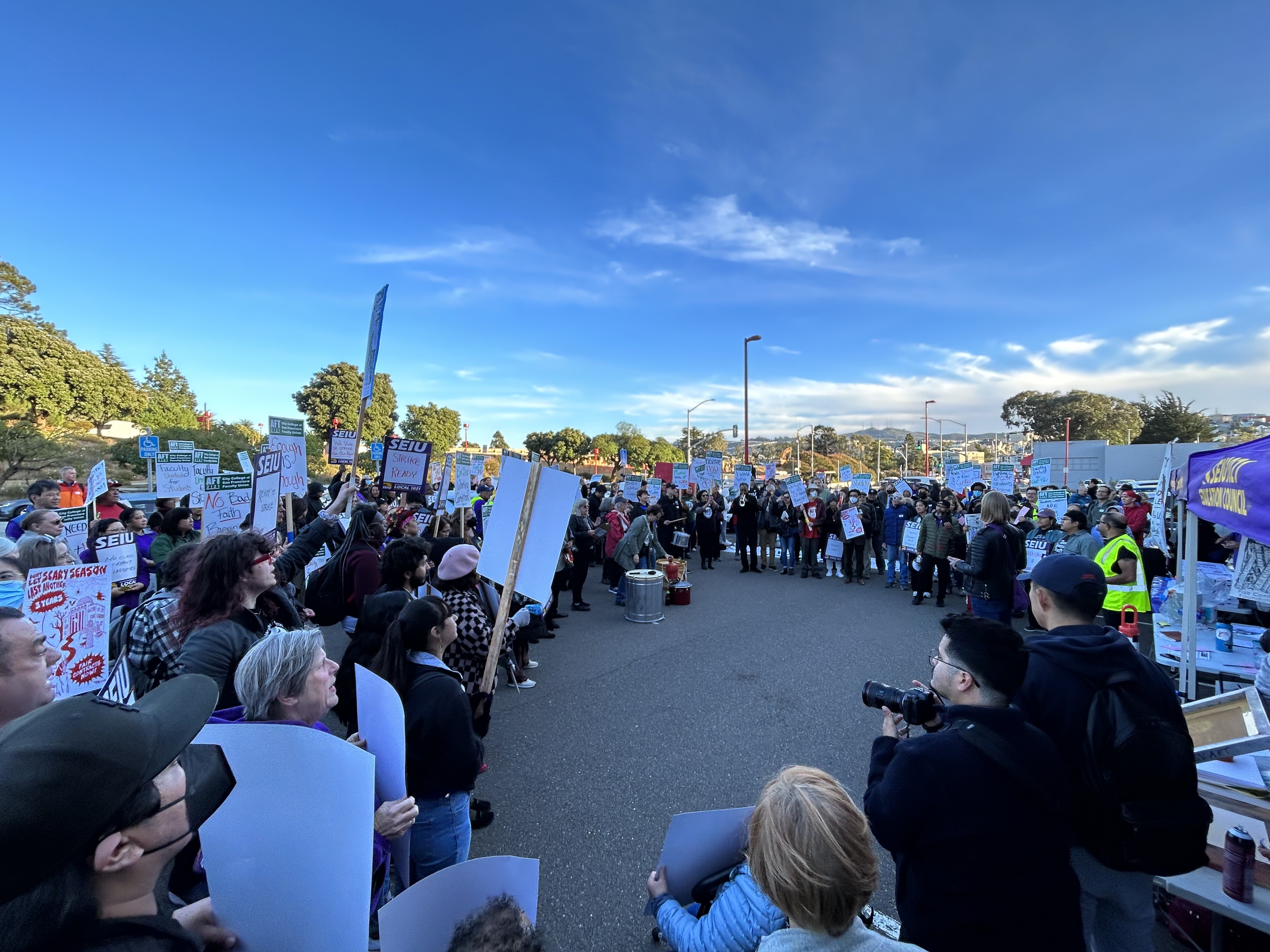
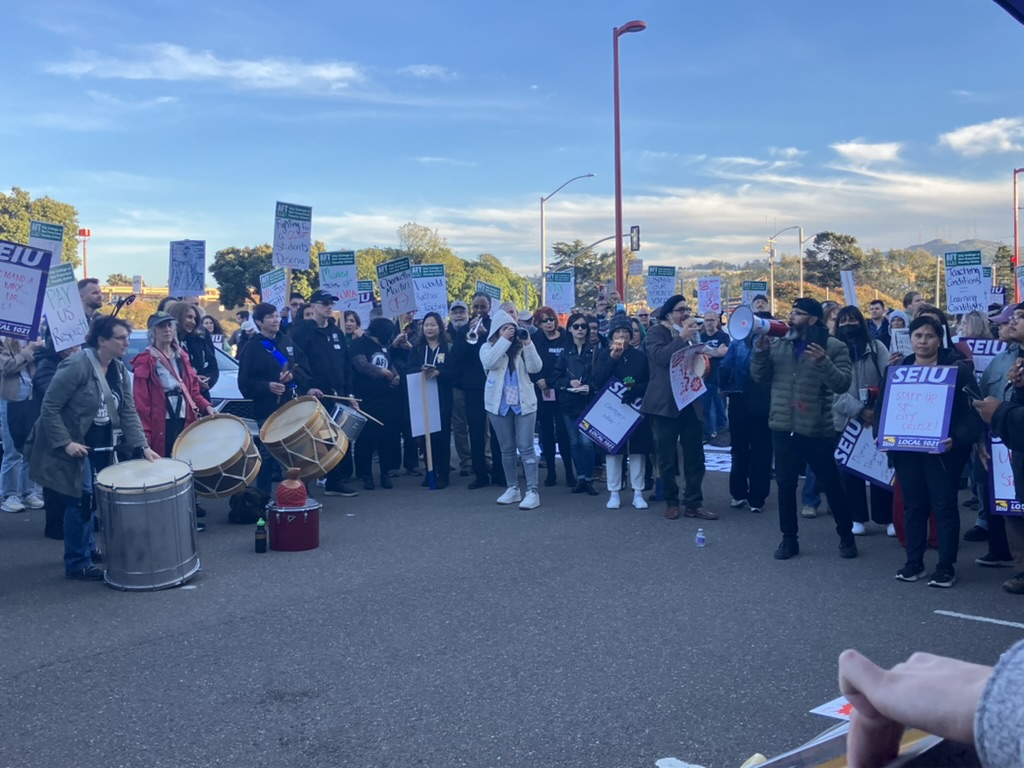
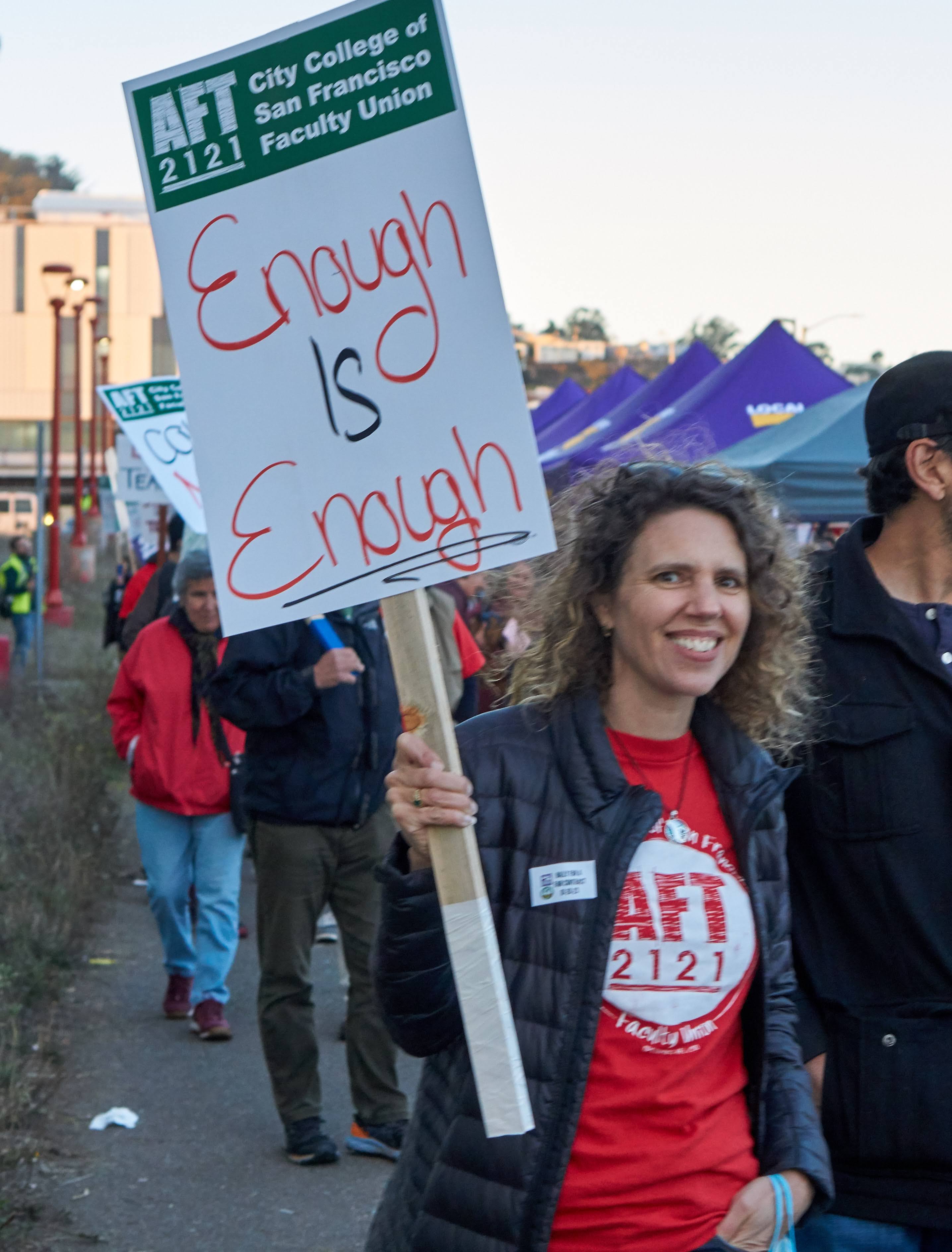

Follow Us!